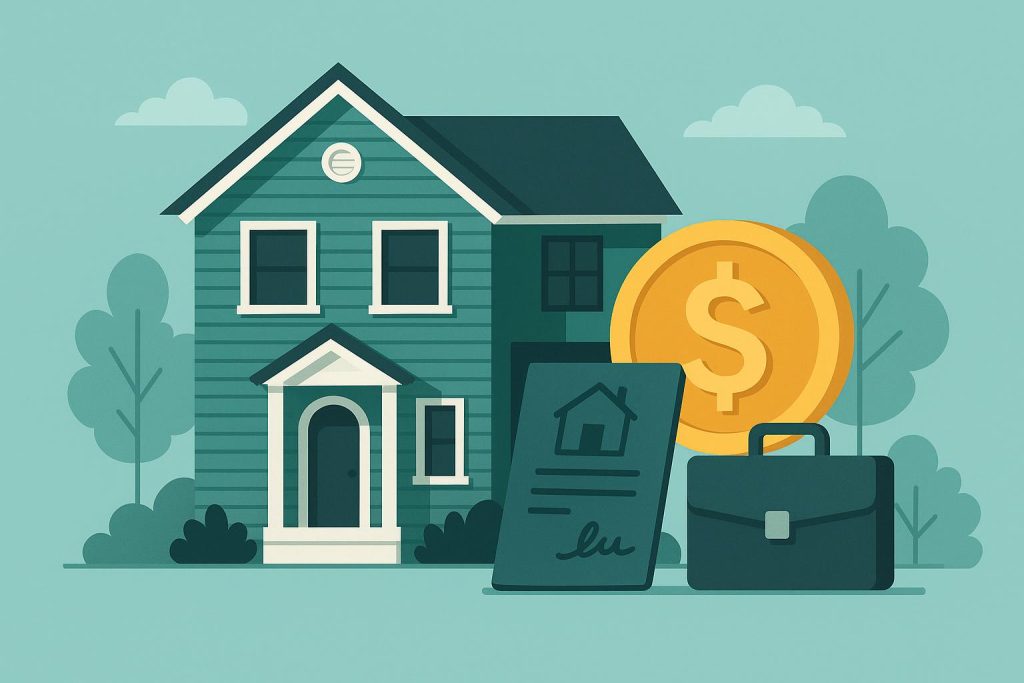Homeowners across British Columbia are using private lenders to unlock the value of their properties. With stricter bank lending rules and high property values, many turn to private mortgage options to fund renovations, manage debt, or seize investment opportunities. This approach gives borrowers more flexibility, faster approvals, and the ability to qualify even with less-than-perfect credit.
How Equity Creates Financial Flexibility
Home equity is the difference between your property’s market value and what you still owe on your mortgage. With BC’s home prices remaining among the highest in Canada, many homeowners are sitting on substantial equity. Instead of letting that value sit idle, accessing it through a loan allows them to reinvest in repairs, new ventures, or personal goals.
Private lenders use property equity as the main factor in loan approval. This makes it easier for borrowers to qualify, even if their credit score or employment situation doesn’t meet a bank’s strict requirements. For homeowners who have been declined by traditional lenders, private lending provides a practical alternative.
To learn more about flexible borrowing options, you can connect with BC’s trusted mortgage broker Jeff DiLorenzo for insights and customized loan solutions.
The Growing Role of Private Lenders in BC
In 2025, private lending represents a significant part of lending activity in British Columbia. Traditional lenders have become more conservative due to regulatory pressures and economic uncertainty. That has created a financing gap, which private lenders are now filling.
Private lenders evaluate each borrower individually instead of using rigid criteria. They can provide bridge loans, second mortgages, or short-term solutions that help homeowners manage cash flow or take advantage of market opportunities. According to the Emerging Trends in Canadian Real Estate 2025 report by PwC, private capital continues to expand across Canada because it offers adaptability in an economy where institutional lending has slowed.
Alternative Home Equity Solutions
Private mortgage companies are known for offering customized alternative home equity loans that fit various needs. These products let borrowers tap into the value of their home without breaking their existing mortgage.
Home equity loans can be used to pay off credit cards, fund home improvements, or even purchase investment properties. In areas like Vancouver and Victoria, where homes have appreciated for decades, this type of financing often gives families access to liquidity they wouldn’t otherwise have.
BC’s Mortgage Services Act, which takes effect in 2026, will also introduce more oversight and protection for borrowers, ensuring that the private lending industry remains transparent and secure.
Overcoming Credit Challenges
Credit challenges can make it difficult to secure financing through traditional banks. Factors like late payments, high debt ratios, or short employment histories can disqualify borrowers from conventional mortgages. However, private lenders take a more balanced view.
Through specialized bad credit mortgage programs, homeowners can use their property equity to secure funds even if their credit score isn’t ideal. The loan amount is primarily based on the value of the home, not just the borrower’s credit history.
This flexibility can make the difference for self-employed individuals, new immigrants, or those recovering from financial setbacks. In most cases, private mortgage terms are short—typically one to three years—giving borrowers time to rebuild credit and eventually refinance under better conditions.
Why BC Homeowners Are Making the Shift
The shift toward private lenders in BC is about control and opportunity. Homeowners want access to their equity when banks say no. They want quicker approvals and more adaptable loan terms. Private lending offers this freedom.
At the same time, the financial landscape in BC is changing. As interest rates gradually stabilize, many homeowners are finding that using equity through private loans helps them stay competitive in an expensive real estate market. Private funds can help pay off high-interest debt or provide bridge financing between property purchases.
What to Consider Before Borrowing
Working with a reputable mortgage broker is key when taking this route. Borrowers should understand loan terms, interest rates, and repayment plans before signing. Choosing professionals who operate transparently under the guidance of BC’s emerging mortgage regulations ensures a smoother and safer process.
Final Thoughts
Private lending is giving BC homeowners real financial options in 2025. Whether accessing home equity for renovations, consolidating debt, or handling credit challenges, these lending solutions offer speed, adaptability, and clarity in a tightening financial environment.
If you’re ready to explore your home’s potential and turn equity into opportunity, connect with a reputable mortgage broker to learn more about tailored lending options today.




